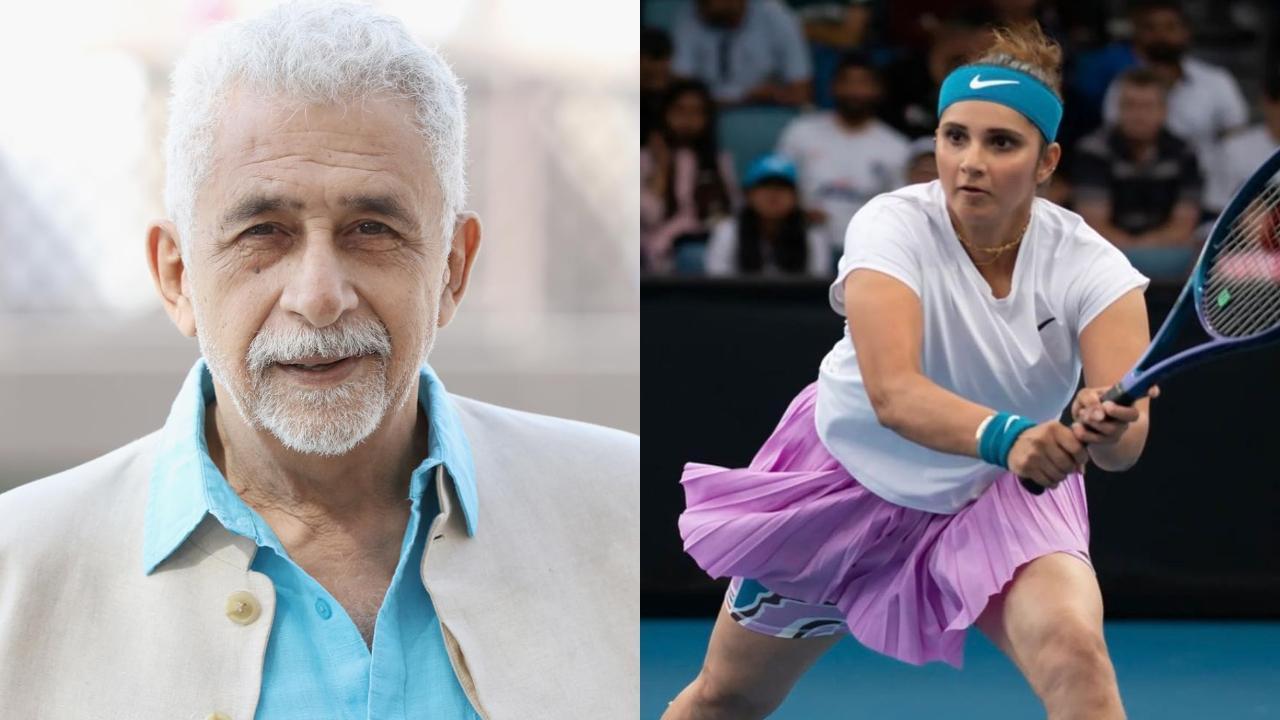
Veteran actor Naseeruddin Shah, known for his candid and forthright opinions, recently sat down for an interview following the results of the Lok Sabha Elections 2024. With Prime Minister Narendra Modi taking the oath for his third consecutive term, Shah did not shy away from critiquing the hyper-focus many place on Modi, while also highlighting long-standing issues that have plagued the Muslim community.
In his conversation with The Wire, Shah touched on a plethora of concerns, among which he pointedly criticized the priorities of the Muslim community. “Muslims are worrying about all the wrong things like the Hijab and the length of Sania Mirza’s skirt,” he asserted. “They should be instead worried about education, enlightening, modern ideas instead of Madrassas. The Muslims have been at fault.”
These remarks came against the backdrop of widespread debates and protests over cultural and religious issues within the community. Shah, however, appears to believe that these discussions overshadow more pressing concerns that could contribute to the betterment and upliftment of Muslims across India.
When asked to comment on the composition of PM Modi’s third cabinet and the representation of Muslims therein, Shah offered a thought-provoking response. “Modi seems fond of headgear. I’d like to see him wear a skullcap someday… just wearing a skullcap would be a gesture,” he remarked. This is a reference to an incident in 2011 where PM Modi declined to wear a skullcap offered by a cleric, an act that has since remained a contentious memory. “But if he does, it would be a gesture that ‘I am not separate from you. You and I are citizens of the same country. I have no aversion to you.’ If he were to convince the Muslims of this country of that, I think that would be a great help,” Shah elaborated.
Throughout his career, Shah has proven his versatility and acting prowess in a variety of roles.
. With films like ‘Hum Paanch’, ‘Nishant’, ‘Aakrosh’, ‘Sparsh’, ‘Mirch Masala’, ‘Albert Pinto Ko Gussa Kyon Ata Hai’, ‘Bhavni Bhavai’, ‘Junoon’, ‘Mandi’, ‘Ardh Satya’, ‘Katha’, ‘Jaane Bhi Do Yaaro’, ‘Ijaazat’, ‘Jalwa’, ‘Ghulami’, ‘Mohra’, and ‘Monsoon Wedding’ under his belt, he has become a formidable name in the Indian film industry. Most recently, he graced the screen in the web series ‘Showtime,’ which stars Emraan Hashmi, Mahima Makwana, Mouni Roy, Rajeev Khandelwal, Vijay Raaz, and Shriya Saran.
Shah’s involvement in films never constrained him from voicing his opinions on pivotal issues. His candid criticisms extend beyond artistic boundaries, delving into social, political, and cultural realms. His recent comments serve as a mirror to reflect on some uncomfortable truths within the Muslim community that he believes need urgent attention and rectification.
Meanwhile, Shah is not slowing down in his professional journey. He is set to feature in an upcoming film titled ‘Ul Jal Jalool Ishq,’ in which he will act alongside Vijay Varma, Fatima Sana Shaikh, and Sharib Hashmi. The film is produced by the renowned designer Manish Malhotra under his production banner Stage 5 Production, and its music will be composed by the legendary duo Gulzar and Vishal Bhardwaj.
As the conversation shifted back and forth between profession and personal beliefs, Shah’s central message remained clear: there is a need for introspection within the Muslim community. Education and modernity should be at the forefront of discourse and action, rather than what women wear or traditional schooling practices that may no longer serve the best interests of the community’s youth.
In his critique, Shah does not absolve political leaders from their responsibilities towards minority communities. His pointed commentary on PM Modi’s refusal to wear a skullcap serves as an emblematic gesture of wider issues of cultural inclusivity and acceptance. However, Shah’s primary concern lies with what he sees as the community’s misaligned priorities.
The gravity of Shah’s words resonates with many who have long observed the socio-political dynamics in India. His comments ignite a powerful conversation about education, representation, and cultural identity in modern India. As the veteran actor continues to influence both on-screen and off, his sharp insights challenge us to rethink where the real issues lie and how they can be effectively addressed for a prosperous future.












